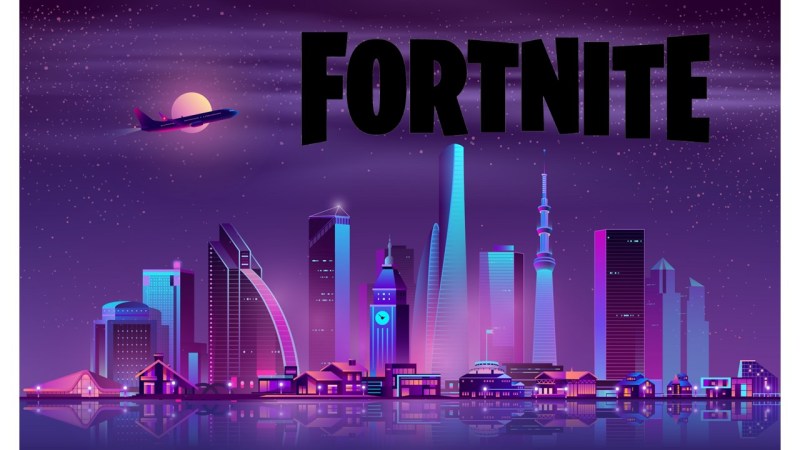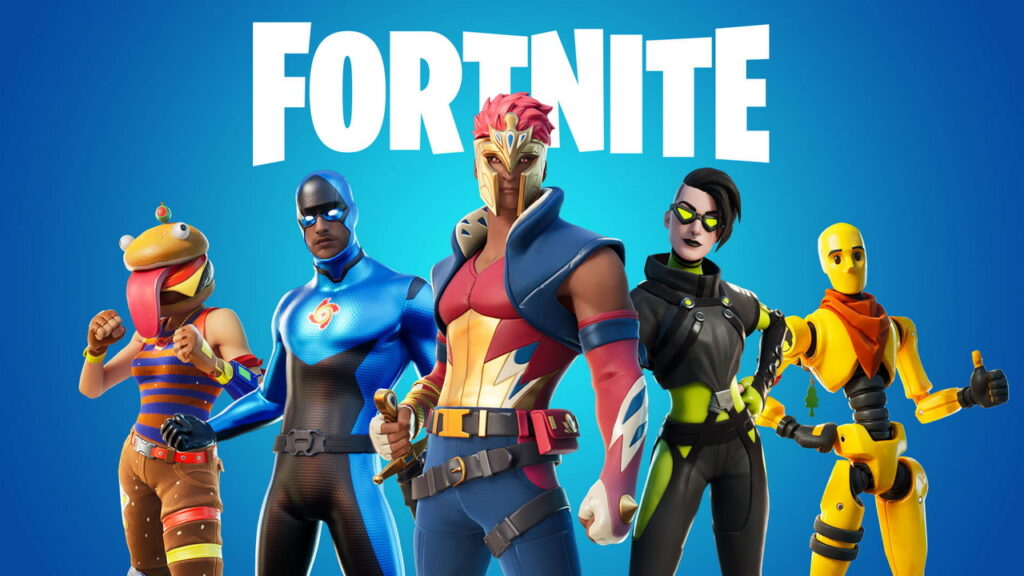Fortnite, the Battle Royale from Epic Games, could well beat the likes of Meta and Google to create the first functioning Metaverse of the future. Although the technology is not yet available, Epic Games has all the ingredients to make it a frontrunner. Aspects of the proposed Metaverse are already incorporated into Fortnite’s gaming ecosystem.
Epic Games and Web3
One gaming platform that has kept total faith with Web3, NFTs, and the Metaverse, is the makers of Fortnite, Epic Games. Whilst other platforms, such as Minecraft, have banned NFTs, Epic Games has doubled down with $2 billion funding through partnerships with Sony ($1 billion) and the Lego Group, KIRKBI ($1 billion).
Their commitment was further cemented, with the addition of the first-ever NFT game added to their Epic Games platform. Blankos Blockchain Party became available to download on the gaming platform on the 15th of September.
Additionally, Epic has made no secret of its goal of making Fortnite something bigger than just a game.
The company’s flagship game might not be an NFT game, but it has many qualities associated with the Metaverse.
OK. Yes, it is a video game. But it is a lot more. In 2019, Epic Games CEO Tim Sweeney hinted at his ambition for Fortnite in a tweet.
Since that tweet, we have witnessed the game’s evolution into more than just a game you play. Especially, since the establishment of ‘Party Royale’, the game’s non-combat mode where social events occur.
The word ‘Metaverse’, was first coined by science-fiction writer Neal Stephenson in his 1992 book, Snow Crash’. In the book, he introduces the word, ‘Metaverse’ to describe an online virtual reality experience.
Since then, as technology progressed, we have coalesced around a vision of the Metaverse, albeit there are still some disagreements, according to an essay by venture capitalist Matthew Ball. Does Fortnite have any of these elements?
Be persistent – it will continue uninterrupted with no resets or pauses.
Each season Epic Games adds to its lore
Be contemporary and live – the Metaverse will exist continuously in real-time for everyone. Although, pre-organized special events, such as concerts, will occur.
Epic Games has already organized mass events, including concerts by Travis Scott and Ariana Grande, however, with a few caveats that we mention later in the article. Furthermore, they have held political discussions and decorated content creators and players with unique skins to adorn themselves with as they strut around in the game.
No limits to simultaneous users. Whilst delivering a sense of ‘being’ to each participant – users can participate in events of their choosing whilst still engaging independently.
The tech is not advanced enough. However, with live concerts, they are ahead of the competition.
A fully operational economy – individuals and businesses will be capable of owning, creating, buying, selling things, or being compensated for work deemed valuable by others.
Fortnite already has a fully functioning economy.
The experience will bridge both the physical and digital worlds – including open and closed platforms and public and private events.
The Fortnite World Cup and concerts bridge the digital and physical worlds.
Offer seamless interoperability – including the ability to move digital assets across games and experiences. For example, you could take skins from one game and use them in another.
The company’s Unreal Engine is “versatile enough for broad-scale implementation across product lines.”
Content will be created by a variety of contributors – including individuals, organized interest groups, or corporate and commercial entities.
Creators are rewarded for new content, and outside vendors and brands have contributed.
The technology to create a complete Metaverse does not exist yet. What we have today, the internet was created for sending files between computers, not a fully synchronized experience comprising millions of participants. We will need to create more advanced digital tech.
For example, whilst Facebook has billions of members, each time, you interact on the platform, you only connect with one server, Facebook, not with other users.
Or take Fortnite’s 2019 Marshmello concert. 11 million users watched the concert broadcast, but strictly speaking, they did not watch it simultaneously. According to Matthew Ball,
“more than 100,000 instances of the Marshmello concert, all of which were slightly out of sync and capped at 100 players per instance.”
Creating the tech for unlimited synchronization will not be easy, but Fortnite’s Unreal Engine and gaming tech is far ahead of social platform tech.

Unreal Engine
Gaming industry companies will play a central part in the coming metaverse, with Unreal Engine and Unity ahead of the pack. These engines are pivotal for the formation of a digitized society. They provide the foundations for augmented and virtual reality applications to be used in an immersive experience. This alone is worth Lego Group and Sony investing such large amounts.
Epic Games’ Unreal Engine is a frontrunner here. Architects, town planners, and designers use the Engine to build digital and 3d representations of their new projects and existing buildings. New cars and motorbikes are designed using the Unreal Engine. Likewise, it is used extensively in the entertainment industry, including in film and animated cartoons.
All these digital representations may be used to simulate real-life situations such as disaster management or simply for clients to visit virtual worlds where businesses can advertise and offer services.
Another notable user of Gaming Engines is the military, with its endless need for advancements in the arms race, simulation of battlefield engagements, and training personnel, to mention a few.
Afterthoughts
Epic Games has been clear, that it wants to build a single Metaverse for their iconic game, Fortnite. A place where fans, developers, and creators can have fun, chill and socialize with other gamers, store their digital assets, and generally enjoy pop culture in a virtual world.
The future Fortnite Metaverse is a work in progress, but with companies such as the Lego Group and Sony’s backing, it just might be the real thing.
As stated in a paper by Andreas Jungherr and Damien B Schlarb,
“While Fortnite may not yet be a metaverse, it’s unique synthesizing of stories, franchises, and its ambition to be a place rather than a storefront make it into a compelling prototype for a cross-platform and cross-media story- and brand worlds.”

